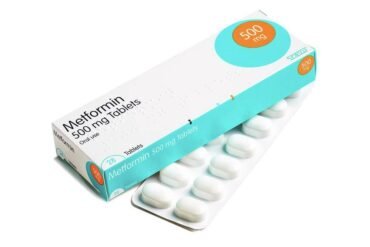Fluticasone (Flonase) vs. Budesonide (Rhinocort): Allergy Medication Comparison

Table of Contents
- Introduction to Allergy Medications
- Overview of Fluticasone (Flonase)
- Overview of Budesonide (Rhinocort)
- Comparison of Fluticasone and Budesonide
- Conclusion: Choosing the Right Allergy Medication
Introduction to Allergy Medications
Allergy medications are commonly used to relieve symptoms associated with allergies such as sneezing, itching, runny nose, and congestion. There are various types of allergy medications available, including oral antihistamines, nasal corticosteroids, and nasal antihistamines. Fluticasone (Flonase) and Budesonide (Rhinocort) are two popular choices when it comes to nasal corticosteroids.
Fluticasone (Flonase):
- Flonase is a nasal corticosteroid spray used to treat seasonal and year-round allergies.
- It works by reducing inflammation in the nasal passages, thereby relieving allergy symptoms.
- Flonase is available over-the-counter (OTC) and in prescription-strength formulations.
- It is typically used once daily and may take a few days to show its full effect.
- Common side effects may include nasal irritation, headache, and nosebleeds, but overall, it is well-tolerated.
Budesonide (Rhinocort):
- Rhinocort is another nasal corticosteroid spray used to manage allergy symptoms.
- Like Flonase, it reduces inflammation in the nasal passages and provides relief from allergy symptoms.
- Rhinocort is available only with a prescription, and it is generally used once daily.
- It may take a few days to provide maximum relief from allergy symptoms.
- Common side effects may include nasal irritation, bitter taste, and headache.
Comparison:
Both Flonase and Rhinocort are effective in managing allergy symptoms, but there are a few differences to consider:
- Availability: Flonase is available both over-the-counter and in prescription-strength formulations, while Rhinocort is only available with a prescription.
- Use: Flonase is typically used once daily, whereas Rhinocort is also generally used once daily.
- Side Effects: While both medications may cause similar side effects, the specific intensity and frequency may vary from person to person.
It’s important to consult with a healthcare professional to determine which medication is most suitable based on individual needs, medical history, and existing allergies. Only a healthcare professional can provide proper guidance regarding dosage and potential drug interactions.
Overview of Fluticasone (Flonase)
Fluticasone, commonly known by its brand name Flonase, is a nasal spray medication used for the treatment of allergies. It belongs to a class of drugs called corticosteroids, which work by reducing inflammation in the nasal passages. Flonase is primarily used to relieve symptoms associated with seasonal allergies, such as sneezing, runny nose, congestion, and nasal itching.
Here are some important points to know about Fluticasone:
- Effectiveness: Flonase is highly effective in reducing allergic symptoms, with noticeable improvement usually within several days of use.
- Long-lasting relief: Unlike antihistamines that only provide temporary relief, Flonase provides long-lasting relief with regular use. It helps minimize symptoms throughout the day.
- Minimal side effects: Flonase is generally well-tolerated, with minimal side effects. The most common side effects include nasal irritation, nosebleeds, and headache.
- Non-drowsy: Flonase is a non-drowsy medication, allowing individuals to carry on their daily activities without experiencing drowsiness or sedation.
- Prescription vs. over-the-counter: Flonase is available both as a prescription and over-the-counter (OTC) medication. OTC Flonase (Flonase Sensimist) is approved for individuals aged 2 years and older, while prescription Flonase may be prescribed for different age groups.
- Proper usage: It is essential to properly use Flonase to maximize its effectiveness. The spray should be directed away from the nasal septum and towards the sides of the nostrils, with the head upright and inhaling gently during administration.
- Warnings: It is crucial to consult a healthcare professional before using Flonase, especially if you have any underlying medical conditions, are pregnant or breastfeeding, or taking other medications.
Fluticasone (Flonase) is a popular and effective option for managing nasal allergy symptoms. However, it is always recommended to consult a healthcare professional to evaluate individual allergies and determine the most appropriate treatment plan for optimal relief.
Overview of Budesonide (Rhinocort)
Budesonide, marketed under the brand name Rhinocort, is an allergy medication commonly used to provide relief from nasal symptoms such as congestion, sneezing, and itching caused by allergies. It belongs to a class of medications called corticosteroids, which work by reducing inflammation in the nasal passages.
Budesonide is available in the form of a nasal spray and is typically used on a daily basis for long-term management of allergy symptoms. It is approved for use in both adults and children over the age of six. The medication is usually well-tolerated and does not cause drowsiness, making it suitable for daily use.
Here are some key points to understand about Budesonide (Rhinocort):
- Efficacy: Budesonide has been shown to effectively reduce nasal congestion, sneezing, itching, and other symptoms associated with allergies. Clinical studies have demonstrated its ability to improve overall quality of life for individuals with allergic rhinitis.
- Safety: Budesonide is generally safe when used as directed. However, it may cause mild side effects such as nosebleeds, nasal irritation, or headache in some individuals. These side effects are usually temporary and resolve on their own.
- Administration: Budesonide nasal spray should be used exactly as prescribed by your healthcare provider. Typically, it is recommended to spray the medication into each nostril once a day. It may take several days of consistent use before experiencing the full benefits of the medication.
- Precautions: It is important to inform your healthcare provider about any existing medical conditions, as well as any other medications or supplements you may be taking, before using Budesonide. They can determine if it is safe and appropriate for you.
- Availability: Budesonide nasal spray is available over the counter and can be purchased without a prescription. However, it is advisable to consult with a healthcare professional before starting any new medication.
In summary, Budesonide (Rhinocort) is a nasal corticosteroid medication used to alleviate the symptoms of allergies. It is a safe and effective treatment option when used as directed. However, individual responses may vary, and it is always recommended to consult with your healthcare provider to determine the best course of treatment for your specific needs.
Comparison of Fluticasone and Budesonide
Fluticasone (Flonase) and Budesonide (Rhinocort) are both commonly used medications for treating allergies. While they belong to the same class of drugs, known as corticosteroids, there are some differences between the two. This comparison aims to provide an overview of their similarities and dissimilarities to help you make an informed decision about which one may be more suitable for your allergy symptoms.
- Delivery Method: Fluticasone and Budesonide are both available in nasal spray forms. Flonase nasal spray contains fluticasone propionate, while Rhinocort nasal spray contains budesonide. The nasal spray formulation allows for direct application to the nasal passages, targeting the symptoms associated with allergic rhinitis.
- Efficacy: Both medications have been proven to effectively relieve nasal congestion, sneezing, itching, and runny nose caused by allergies. However, individual responses may vary, so it is recommended to try both medications under the guidance of a healthcare professional to determine which one provides better symptom relief for you.
- Onset of Action: Fluticasone and budesonide work in a similar manner, reducing inflammation in the nasal passages over time. It may take several days of consistent use before experiencing noticeable improvement in symptoms. Therefore, these medications are not intended for immediate relief of acute allergy symptoms.
- Side Effects: Both medications are generally well-tolerated when used as directed. However, some individuals may experience mild side effects such as nasal irritation, headache, or sneezing. These side effects are typically temporary and resolve on their own.
- Availability: Fluticasone (Flonase) is available over-the-counter, while Budesonide (Rhinocort) requires a prescription from a healthcare professional. The availability may differ depending on your country and local regulations.
- Cost: The cost of these medications can vary depending on factors such as brand availability, insurance coverage, and location. Generally, generic versions of both drugs may be more cost-effective options. Discuss with your healthcare provider or pharmacist to find the best-priced option.
In conclusion, both Fluticasone (Flonase) and Budesonide (Rhinocort) are effective corticosteroid nasal sprays for treating allergy symptoms. They have similar mechanisms of action, efficacy, and side effect profiles. The choice between the two may come down to factors such as personal preference, accessibility, cost, and guidance from your healthcare professional. It’s essential to consult with a healthcare provider to determine the most appropriate medication to manage your specific allergy symptoms.
Conclusion: Choosing the Right Allergy Medication
When it comes to managing allergies, Fluticasone (Flonase) and Budesonide (Rhinocort) are both effective options. However, several factors should be considered to choose the right medication for your specific needs.
Firstly, if you need quick relief from moderate to severe allergy symptoms such as nasal congestion, sneezing, and itchy eyes, Fluticasone (Flonase) may be the better choice. It acts rapidly and provides long-lasting relief, making it suitable for daily use throughout allergy season.
On the other hand, Budesonide (Rhinocort) is an excellent option for those seeking a gentle yet potent solution. It is particularly beneficial for individuals with nasal congestion and postnasal drip as its formulation soothes inflammation and reduces swelling. Although it may take longer to see results compared to Fluticasone, Budesonide offers sustained relief over time.
Another crucial consideration is the potential side effects. Both medications are generally well-tolerated, but some individuals may experience mild side effects such as nasal irritation or sneezing. However, these side effects typically diminish with regular use.
In terms of cost, Fluticasone tends to be more affordable and readily available as an over-the-counter medication. This accessibility makes it a convenient choice for many allergy sufferers. On the other hand, Budesonide may be a prescription-only medication in some regions and could be slightly more expensive.
Ultimately, consulting with your healthcare provider is vital in determining which medication is best suited for your allergies. They will consider your specific symptoms, medical history, and any other medications you may be taking to personalize your treatment plan.
Remember, finding the right allergy medication is a process of trial and error. It may take some time to find the one that provides optimal relief with minimal side effects. It is also important to follow the recommended dosage and use the medication consistently to achieve maximum benefits.
- Consider the severity of your symptoms and the speed of relief needed.
- Weigh the potential side effects and their impact on your daily life.
- Factor in accessibility and cost.
- Consult your healthcare provider for personalized advice.
- Be patient and willing to try different medications if needed.
By carefully considering these aspects, you can make an informed decision and choose the right allergy medication that will effectively manage your symptoms, allowing you to enjoy life allergy-free.


























